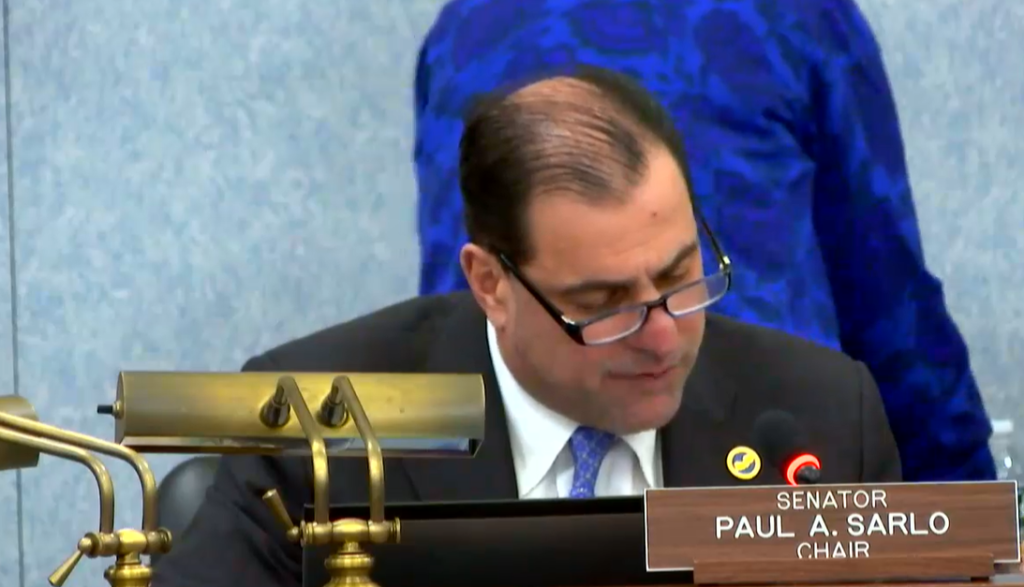Senate Budget Committee Releases DPS Wage Increase Supplemental

The Senate Budget Committee this afternoon unanimously passed S1194, which would makes a FY 2020 supplemental appropriation of $16.5 million for direct support professional (DSP) wage increase.
According to the language of the billl, these funds would increase the existing appropriation of $40 million, for a total FY 2020 appropriation of $56.5 million.
A DSP provides hands-on supports to people with intellectual and developmental disabilities (I/DD) and are the reason people with I/DD are able to live meaningful lives in the community. DSPs implement complex behavioral health plans, oversee and administer essential medical care, comply with regulations and reporting requirements, and serve as advocates, companions, mentors, and caregivers. Although the appropriation benefits DSPs providing services under provider contracts or fee-for-service agreements within several departments, the vast majority is ultimately allocated to the Division of Developmental Disabilities in the Department of Human Services.
At an average starting salary of $12 per hour, DSP wages are not competitive, with an increasing number of retailers paying $15 to $18 per hour and New Jersey’s minimum wage on a path to $15 per hour for entry-level jobs that are far less demanding. To compound the issue, there is a growing DSP shortage that is threatening the safety and health of individuals with I/DD living in community-settings.
It is the sponsor’s goal that this supplemental appropriation will provide the funding necessary in order for the DSP workforce to stay competitive and maintain a stable. According to the Coalition for a DSP Living Wage, these funds, along with a federal match of $16.5 million, will equal a $1.20 an hour increase for DSPs, which is needed in order to accommodate the next increase to the minimum wage on January 1, 2021 to $12 per hour.
Sweeney Bill Would Fund Pay Hike for Direct Care Workers
Trenton – A senate committee today approved legislation sponsored by Senate President Steve Sweeney that would provide $16.5 million to fund pay increases for the direct care workers who provide care for the disabled. The additional funds would increase the existing appropriation of $40 million this year to a total of $56.5 million.
“The service providers who are on the frontline providing care for the disabled should be fully appreciated and valued for their service,” said Senator Sweeney (D-Gloucester/Salem/Cumberland). “I have a lot of respect for these dedicated workers because I understand and appreciate the type of work they do. This is additional funding that will help provide them with a living wage.”
Providing these services requires a trained support professional workforce, Senator Sweeney said. They provide support necessary for individuals with intellectual and developmental disabilities to live with a level of independence in their home communities.
These DSP workers, called direct support professionals, hold jobs that require background checks, training and working with people who have medical and behavioral challenges, as well as limited communication skills. Their duties include meeting medical and behavioral health needs, and teaching workplace, and social skills.
At an average starting salary of $12 per hour, DSP wages are not competitive. Due to the low salaries, there is a high turnover and some of the workers are forced to seek public assistance or work multiple jobs. The increased state funding will support the service organizations in paying their employees the increased minimum wage, which will climb to $15 per hour in the coming years.
"For people with intellectual and developmental disabilities (I/DD) to live their lives to the fullest, they must have a robust and dependable Direct Support Professional workforce they can rely on,” said Tom Baffuto, the Executive Director of ARC. “These staff are absolutely essential but finding and retaining staff is incredibly challenging because their wages do not match the important work that they do. The system faces a new hurdle now that minimum wage is rising each year and the gap between the average DSP starting wage and the minimum wage is getting smaller and smaller. We applaud Senate President Sweeney for his leadership on S1194 which will keep DSP wages ahead of January's minimum wage increase. This legislation isn't just a recognition of our hardworking DSPs, it's a commitment to people with intellectual and developmental disabilities that the staff they need will be there to support them each and every day."
The bill, S-1194, was approved by the Senate Budget Committee with a unanimous vote of 11-0. .





